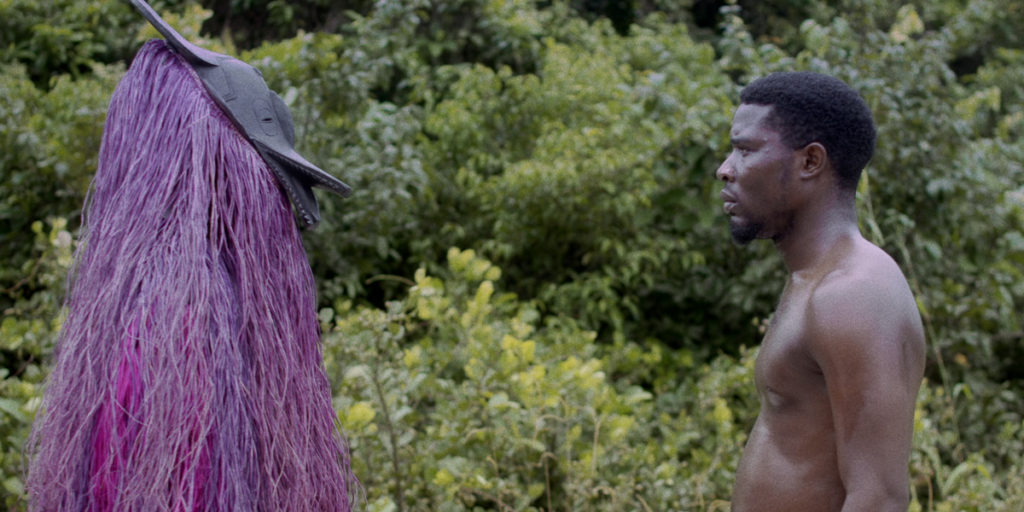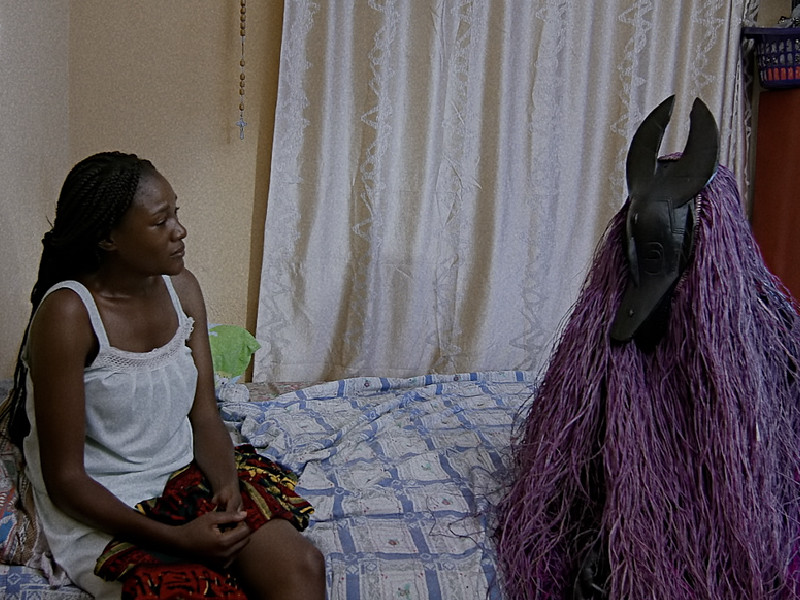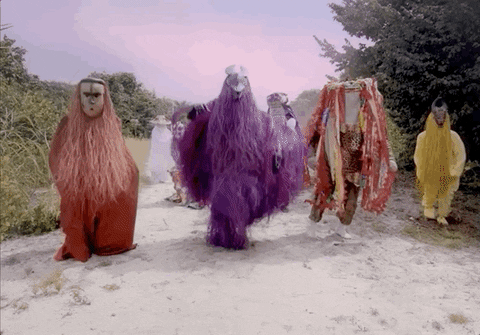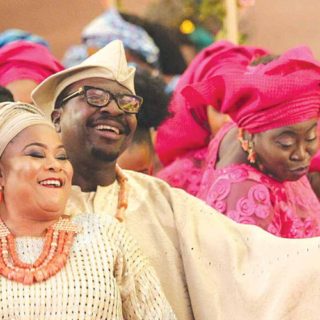The Lost Okoroshi, a 94-minutes film, snagged its audience from the first scene, which was reminiscent of childhood nightmares. The lead character, Raymond Obinwa (played by Seun Ajayi) ran from a masquerade, also referred to as ojuju, in his dream; his wife, Nneka Obinwa (Judith Audu) would have none of it, advising him to seek help from her pastor, in order to rid himself of the recurring dream.
Obinwa is a security guard with a jaundiced view of the urban city life in Lagos — what he and his colleague Musa (Jamal Ibrahim) term as “city madness”. He is a dissatisfied man who is lackadaisical about his job and his living condition in a cube-sized apartment.
He mostly finds solace in the discussions he has with his best friend and elderly neighbour, Chief Okonkwo (Chinwetalu Agu), who supports Obinwa’s beliefs and his yearnings to leave his city life to pursue a quiet farm-life in the village.

Okonkwo is a vital character in the mysterious journey that Obinwa would eventually embark on, unknown to both of them. Being a great supporter of tradition and ancestral heritage, he instructs Obinwa to confront the masquerade he runs away from every night, informing him that there must be something the spirit wants to tell him.
Twinged with an infusion of satire and humour, The Lost Okoroshi

So begins Raymond’s spiritual journey into unfamiliar waters, as the spirit he embodied constantly teleports him from place to place, this is how he is able to be of help to a prostitute (Ifu Ennada), reprimand a thief and dance in different open markets (where he meets a comical character, Willy Willy).
However, halfway through the film, the pace of the film slowed down — this was mostly during Okoroshi’s teleportation and his dancing scenes. There were a few disjointed scenes here and there and some confusing aspects of the movie — like, why didn’t the TV in Obinwa’s bedroom ever go off? After a while the audience can see it’s deliberate, but why? It didn’t add to the narrative, neither did it serve as a piece to a significant puzzle that would have given us a eureka moment at the end.
Despite these, the film left the audience in awe especially with its deep dive into tradition. A classic example of this was when Okonkwo explained the importance of masquerades and when the fictional Igbo People’s Secret Society of Heritage Restoration and Reclamation (IPSSHRR) reclaimed Okoroshi and tried to integrate him back into society.
The afrobeats vibe of the soundtrack in combination with the mist of colour in the air from the masquerades, the moon and the costume of the ancestral spirits gave the film a surreal and eerie feeling.

The Lost Okoroshi is not perfect but it is a film that will consistently leave its audience asking themselves questions about tradition.
The movie is an Osiris Film and Entertainment production and it is co-written by Abba Makama (producer and director) and Africa Ukoh, with Rimimi Makama as the executive producer.




